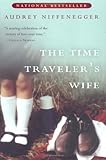 I ordred Andrew Grace’s poetry collection Shadeland after reading his poem “Field Guide for How to Pioneer the Midwest” in the May/June 2015 issue of The Kenyon Review. What particularly struck me about that poem was the simple, relatively unadorned language that not only brought the American pioneer to life, but made him beautiful. It reminded me of stories I had heard. My ancestors living in a dugout in the Texas plains until they could build a house. My great-great-great grandmother crying when the wagon stopped for the night because she didn’t know how to do anything except have babies and look pretty. There is something about westward expansion and farming that that really captures the American spirit for me, so I was eager to delve into more of Andrew Grace’s poetry. His website describes the collection as follows:
I ordred Andrew Grace’s poetry collection Shadeland after reading his poem “Field Guide for How to Pioneer the Midwest” in the May/June 2015 issue of The Kenyon Review. What particularly struck me about that poem was the simple, relatively unadorned language that not only brought the American pioneer to life, but made him beautiful. It reminded me of stories I had heard. My ancestors living in a dugout in the Texas plains until they could build a house. My great-great-great grandmother crying when the wagon stopped for the night because she didn’t know how to do anything except have babies and look pretty. There is something about westward expansion and farming that that really captures the American spirit for me, so I was eager to delve into more of Andrew Grace’s poetry. His website describes the collection as follows:
Shadeland is not only the name of the Illinois farm on which poet Andrew Grace was raised, it is also that elusive space where language attempts to recover all that has been lost. Deeply concerned with the state of today’s rural spaces, Grace’s poems describe a landscape and a lifestyle that are both eroding.
Stylistically rangy, yet united by an ardent eye for intricate imagery, Shadeland features allusions and influences as classical as Homer, Virgil, and Hopkins while still exhibiting a poetic sensibility that is thoroughly contemporary. Employing a blend of baroque and innovative language, these 21st-century pastorals and anti-pastorals both celebrate and elegize the buckshot-peppered silos and instill cornfields that are quietly vanishing from the countryside.
I would definitely agree that the collection is stylistically rangy. Of the poems I liked best, I found myself responding most to the ones that were more like “Field Guide for How to Pioneer the Midwest.” I loved the simple “Pilgrim Sonnet,” which evoked the call to settle the west and elevated it to religious pilgrimage. I’m not so sure it really wasn’t, after reading this poem. I also liked the six-part ekphrastic poem “Dinner for Threshers” inspired by the Grant Wood painting. Possibly my favorite poem was “Z,” which captures with beautiful simplicity the death of the speaker’s father in a farming accident and connects it to “the wind from Illinois” that has shaped and destroyed. It’s really a gorgeous poem. I also really liked “The Outermost Shrine of the Narrowest Road,” “Of Love and Wild Dogs,” “Is to Say,” and “For Tityrus,” all of which I felt were beautifully direct in their language. I think after reading Roger Rosenblatt, I’m noticing the nouns and verbs and the ways in which modifiers detract rather than add. I did try re-writing “Of Love and Wild Dogs” without modifiers in my writing journal, and it has a stark effect, stripping the language in that way. It is something I think I will experiment with in my own writing—drafting it as it comes and then revising to strip the modifiers.
I found this article about Shadeland, which is the family farm that gives its name to this collection. It sounds like quite a place, and I can see why it inspired Andrew Grace. He somehow managed to capture so much about farming in America in this collection, from the promise of early settlers to the ever-shrinking endangered family farm. People have a complicated relationship with the earth, and nowhere does that seem more apparent to me than in farming, which has been a metaphor for the human struggle since Adam and Eve were cast out of the Garden.
I had more or less forgotten how much I like poetry until going to the Kenyon Writer’s Workshop for Teachers, and now I find myself seeking it out and wondering how I could have set it aside. Andrew Grace’s collection Shadeland was a nice re-introduction.
Rating:




